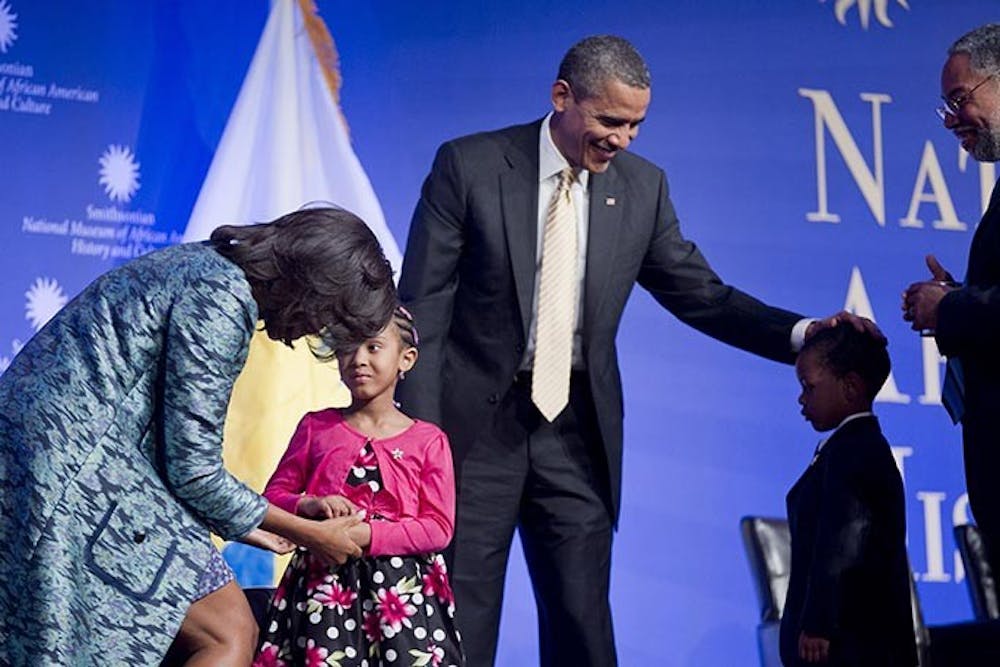Essence Vinson had never seen her grandfather cry until the night Barack Obama was elected the 44th president of the United States.
After growing up working in a cotton field facing discrimination and racial inequality, she said her grandfather felt that he personally accomplished something through Obama’s election victory.
“He felt like he had done something and that means so much to me,” she said. “It means anything can happen today. Anything.”
Vinson, Black Student Association president and a senior social work major, said Black History Month should focus on rising black leaders of today, such as Obama, instead of just historical figures of the past.
“[Barack Obama’s election and re-election] is not the end-all-be-all,” said Stephanie Woolley, a junior legal studies major. “Not, you know, ‘We have a black president now we can all go to bed,’ but it means that we should start changing things in our smaller communities now.”
Kane Miguel, a sophomore public relations major, said while there is a divide between students on campus of different races, it is based mostly on who people feel comfortable with and not because of overt racism.
“I wish it wasn’t that way, but that is one thing people are going to have to want to change within themselves,” he said.
Winston said he thinks the best way to fix the diversity problem is to remember that people are just that — people.
“We put way too much emphasis on people’s adjectives and forget they are a noun first,” Winston said.
Miguel said teaching history with a color bias acts as a barrier between people instead of bringing them together.
“I just really don’t agree with the principle,” Miguel said. “I don’t think you should single people out like that, I just wish it didn’t have to be taught that way.“
Miguel said he thinks when history is taught in any capacity, American history and black history is separate. But everyone is a part of American history he said, and it should be taught that way.
Woolley said the best way to make that change is to bring the issue to the forefront.
“Diversity is an issue no one wants to talk about,” she said. “You don’t want to offend anyone, but let’s just get it started with a conversation.”
Daqavise Winston, a freshman political science major, disagrees. He said there is too much emphasis on famous individuals.
“It leads to a sense of, ‘Oh look at them because they make money,’” Winston said. “But if it wasn’t for historical figures like Dr. King, none of that could have happened.”
Vinson said although it is important to bring those with different backgrounds together, there are specific problems minority students face as opposed to the majority of white students.
“The biggest issue for any student, and especially black students, is being able to afford college,” Vinson said. “And the next is keeping them here. The retention rate for African-American students is really low.”
She said the problems the black community face come from themselves.
“We can do anything in the world, we just need to remind ourselves” she said. “We need to keep striving and have confidence.”


